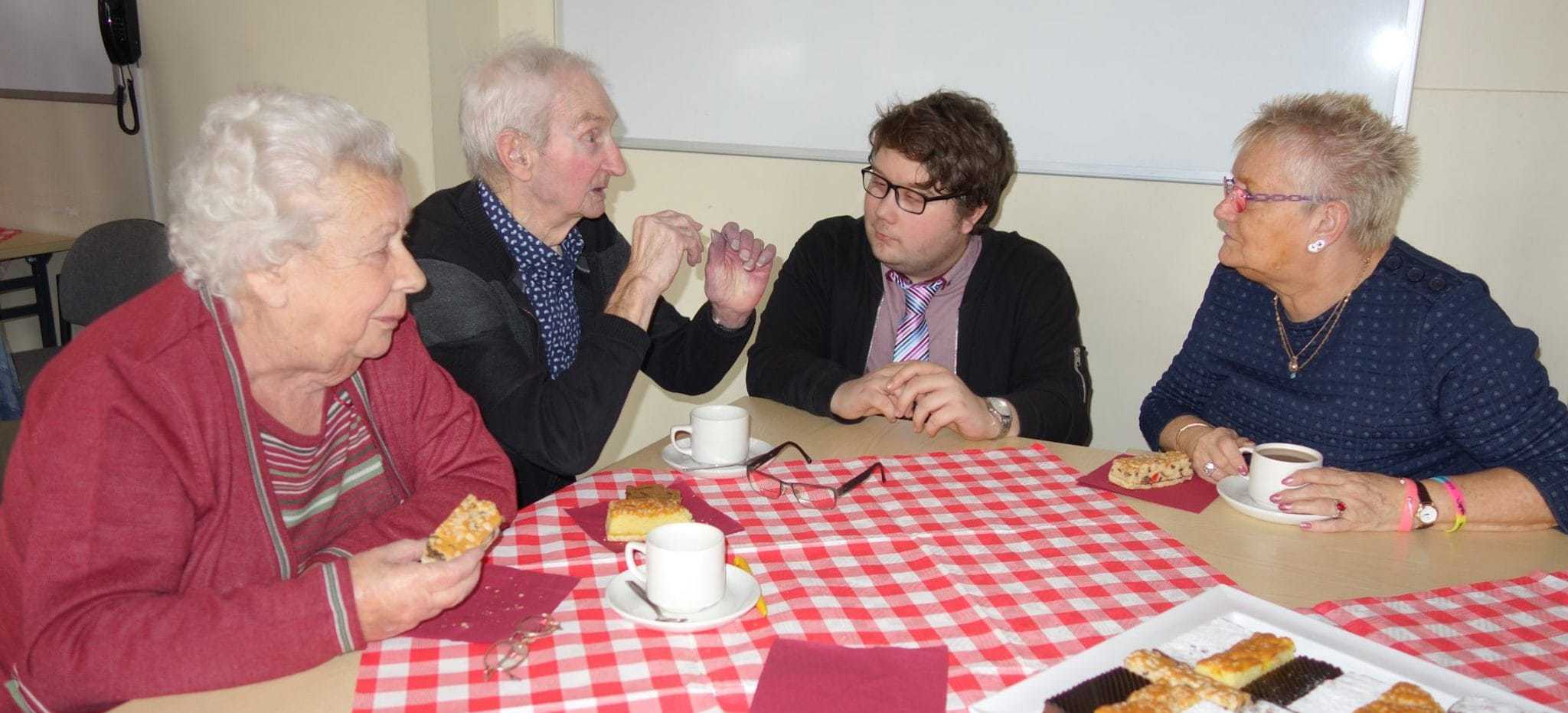Mental Health Awareness Week is an annual campaign which has been hosted by the Mental Health Foundation for the past two decades. This year the Foundation is exploring the experience of loneliness as a key driver of poor mental health in the UK – something which has been exacerbated by the pandemic as people have struggled to connect.
At Student Hubs we recognise fostering connections and a sense of belonging as key elements of supporting the wellbeing of the university students we work with. In particular, our LinkAges programme focuses on tackling loneliness in students, and those in the community, through fostering meaningful intergenerational connections and friendships.
What is LinkAges?
LinkAges was originally established by a group of students in 2010 in response to adult social care budget cuts and an increased awareness in the public of the impacts of loneliness and isolation.
Typically we partner with care homes and community groups establishing regular opportunities for university students and older people to connect over a variety of activities from coffee mornings to memory cafes to craft clubs. We have also offered one off opportunities for connection such as tea parties, craft-a-noons and even a Gogglebox event. Over the years we’ve learned that the activities offered are just the start, in reality the impact of the programme comes down to giving the two groups a safe, open space to get to know each other, chat and connect.
LinkAges is focused on creating a shared experience, combating loneliness amongst students and older people whilst promoting intergenerational understanding and community cohesion. Our opportunities are focused on creating an equal friendship, not on ‘volunteering’ in the traditional sense.
What’s the benefit of intergenerational work?
There are many proven benefits to intergenerational work. For one, it can reduce stereotypes for both groups. This looks like reducing ageism faced by older people and reducing negative attitudes towards students often harboured by their university town. Similarly, for both parties it fosters a sense of belonging in their local community – one which may be new to them or which they may now feel isolated from due to their changing needs. Ultimately, this sense of belonging tackles feelings of isolation.
Additional impacts of intergenerational work include improvements to self-esteem and improved social skills for both parties. These changes can be fostered through creating a positive relationship with someone new, and can support both parties to continue creating these positive relationships beyond the programme.
How did LinkAges respond to the pandemic?
The pandemic posed an increased risk of loneliness and isolation to both university students and older people, as both groups faced new challenges. Ageism and negative attitudes towards students increased in the media and both groups may have felt trapped – unable to have visitors or leave their home safely, and unable to return to their home town from their new, unfamiliar university community.
Although LinkAges wasn’t able to continue as planned, we recognised the increased risk of loneliness in both groups – and the increased need for our work. Our Hubs worked together to innovate around our projects finding virtual and remote ways for communities and students to engage.
In Bristol we set up a Pen Pal scheme with support from the LinkAge Network in the city. Friends with Pens connects students with older people through letter writing. We were also able to join a virtual computer cafe with students supporting members of the community with their technical issues via Zoom, as well as engaging in a lot of chat and a fun quiz!
In Cambridge, our student leader led the way on a Desert Island Discs project, connecting with a local care home to pair students with residents for a series of virtual sessions. At the sessions they shared life stories and influential music, getting to know each other. One student participant said “Moving to a new city in the middle of a pandemic was especially strange, but I was excited to see how Cambridge Hub was still connecting students with local projects, cultivating a sense of community in a very isolating time.” You can listen to the podcast they made from the project below.
Beyond the pandemic, LinkAges is continuing to grow. We learned a lot about reaching people who are isolated through remote and virtual delivery, overcoming barriers both students and older people may face to meeting in person. Our blended approach is being established and we look forward to seeing where the programme goes in the next academic year.
To wrap up I’ll share this. This week, to celebrate Mental Health Awareness Week, LinkAges in Bristol is facilitating a Bingo Afternoon. This will be a fun activity for students and older people to enjoy, but more importantly an opportunity for new connections and friendships to be formed.

